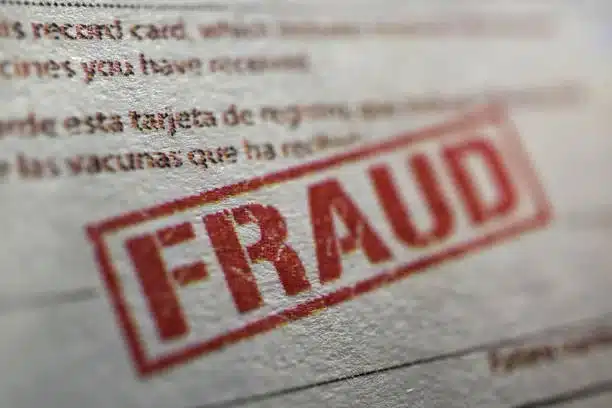Common Travel Frauds and Ways to Tackle Them
The modern age is full of mysteries for all. Businesses have embraced technology to streamline their everyday operations and improve client engagement. However, everything has a disadvantage, and modern technology is no exception. While businesses are focused on finding new ways to improve their operations, scammers use sophisticated strategies to achieve their unlawful goals. No industry is free from fraud in the digital world, not even the travel industry.
Vacation planning is becoming simple with online services, but airports and hotels have lately reported an increase in unlawful behaviour. In the travel industry, certain trends and frauds have emerged. Hotels and airports can utilize an AI-based tool to combat potential online fraud. Let’s deep dive into the blog to check the different types of travel frauds and ways that could protect people from becoming their victims.
Scams in the Travel Sector
Frauds are increasing as the world has gone online. Here are the common frauds witnessed by the airline and resort scams that need to be tackled at the earliest. Even though fake documents are being used in making passports. For that reason,Document verification has become the need of the hour.
Payment Frauds
It is among the most common kind of travel fraud, especially in resorts. Because of fraudulent activities, hotels are facing a number of issues. Tourists arrive with forged hotel reservations, putting a financial burden on the administration. They end up losing a lot many valuable clients and tarnishing their brand’s reputation. To obtain free hotel accommodation, criminals use chargeback. In addition to the above-mentioned payment difficulties, paying with phoney or illegal credit/debit cards is fairly common in this market.
Money Laundering
It is a process of disguising illegally acquired funds. Launderers can complete the basic stages of placement, layering, and integration. Malicious actors who layer money in several areas use resorts as a breeding sites. To prevent ill-gotten gains from accessing hotel accounts, the authorities must quickly discover laundered funds. Money launderers use false names to conceal black money. As a result, airports must conduct additional security checks to fight sophisticated money launderers.
Identity Theft
Client satisfaction is a priority for the tourism industry. Nowadays, customers expect everything to be available online. It does, unfortunately, provide opportunities for imposters to execute their evil schemes. Users could skip the difficulty of traditional reservations and “over-the-counter” payment with the introduction of digital check-ins. They don’t need to go to the front desk to get their room keys. Malicious actors are creating fake identities and stealing other people’s personal information. The collected personal information is then used to get loyalty cards or other benefits, exposing the restaurant owner to chargebacks and some other types of fraud.
Employees at airports face the same dilemma. Since they have counterfeit IDs and passports or there’re no rigorous verification methods in place, most criminals are able to flee after committing all of the horrible actions.
Face Verification – A Great Solution to Combat Frauds
Fraudsters take advantage of the company’s plethora of problems to perform their bad acts. The industry is not only losing money, but it is also losing its image and the faith of its customers. If you work in the airline or hotel industries, how can you make up for your losses? Yes, it is a difficult question. Because the harm may be irreversible, a robust biometric authentication system is required to keep scammers at bay. Facial verification technologies are one way to combat scammers and safeguard hotels and airlines. Face screenings at airports and hotel entrances will allow investigators to identify scammers before they cause any problems.
How Does Face Verification Work?
In today’s world, face detection entails far more than simply detecting faces. Machine learning algorithms included in the program now allow it to spot scammers in no time. Face recognition uses a range of AI algorithms, including the following ways, to improve authentication results:
- Liveness detection
- Micro-expression analysis
- 3D mapping
- 3D depth analysis
- Skin texture analysis
All of the above verification techniques make sure that the customer and travellers are there in real so that they may be verified more thoroughly. Face recognition is a decent choice for travel as well as other industries to keep criminals away because deep fakes or other types of fraud are common in this digital world.
Final Thoughts
Not only have businesses benefited immensely from technology developments, but criminal activity has also increased dramatically. While the travel industry has undoubtedly automated its processes, ineffective authentication services are jeopardizing the security of their customers. Facial recognition software is one of the tools that this industry may use to stop travel frauds and improve security. The face authentication system checks for faked identities, spoof attacks, and deep fakes in real-time. As a result, fraudsters have no way of getting out of the country to carry out their evil plans.

